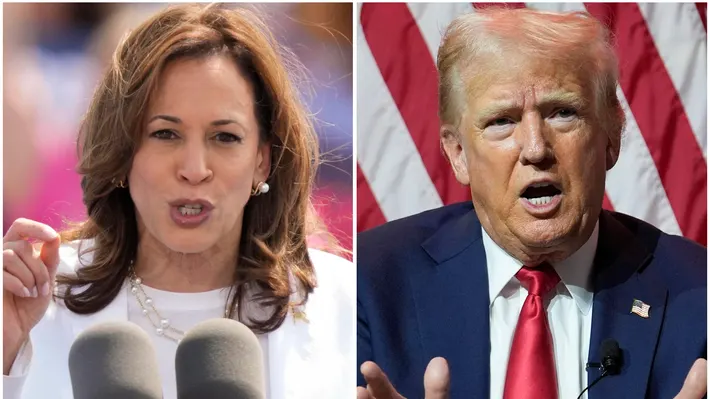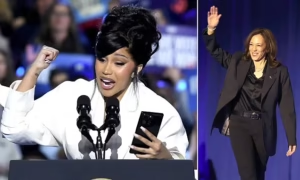
The aftermath of the 2024 U.S. presidential election has brought about an unexpected and highly controversial twist. In a shocking move that has rattled both political allies and adversaries, Vice President Kamala Harris reportedly reached out to former President Donald Trump, urging him to concede defeat after his loss in the presidential race. The act has sparked a fierce debate about the role of vice presidents, party loyalty, and the ethics of influencing a losing candidate to gracefully step down.
A Phone Call That Shook the Nation
Kamala Harris, whose role as the first female, first Black, and first South Asian Vice President has already been a subject of significant attention, made the call in an attempt to calm the political storm surrounding Trump’s refusal to accept the election results. The 2024 race had been one of the most contentious in U.S. history, and many had speculated that Trump would not concede the election even in the face of a clear loss.
However, according to sources close to the matter, Harris, recognizing the need for national unity and stability, reached out personally to Trump in a private conversation. Reports suggest that she urged him to consider the broader implications of his actions on American democracy and the future of the country, imploring him to acknowledge the outcome of the election and allow for a peaceful transition of power.
The Backlash from Trump Supporters
The call, though intended to promote peace and unity, has ignited a firestorm of criticism from Trump’s supporters. For many, the very idea of a Democrat — especially someone as polarizing as Kamala Harris — reaching out to their leader was seen as an affront to the principles of fair play. The question many Trump loyalists are asking is: why should their candidate, having contested every result, be expected to concede before every avenue of legal recourse has been fully explored?
Some have argued that Harris’s actions were nothing more than a political stunt designed to further isolate and discredit Trump. These critics assert that the move undermines the legitimacy of Trump’s campaign, especially given his base’s view that the election was tainted with irregularities. This is a group that, for years, has harbored doubts about the integrity of U.S. elections and has been deeply distrustful of the political establishment, including figures like Harris.
A Breach of Protocol?
While Harris’s actions have been divisive, they have also raised concerns about the boundaries of political protocol. Traditionally, it is the sitting president or the president-elect who reaches out to a losing candidate to call for unity. In this case, President Joe Biden, as the winner of the 2024 election, would have been expected to make the first gesture toward a peaceful transition. Harris, as vice president, traditionally serves as a supportive figure to the president and may not have been expected to take such an active, frontline role.
However, some political analysts believe that Harris’s decision to step in was an acknowledgment of her own growing influence within the Democratic Party and an attempt to take some responsibility for the future of the nation. With Biden’s age and declining public appearances, many are speculating that Harris could soon be the face of the party and the country. Taking a strong leadership role in this contentious moment could be seen as a strategic move to solidify her position.
A Divided Nation
What is clear is that the 2024 election, regardless of how it unfolds, has deepened the divisions in the U.S. While Biden’s victory is certain, with more than enough electoral votes to secure the presidency, the process of coming to terms with the outcome is anything but simple. The idea of national unity, once a cornerstone of presidential transitions, has become a bitter pill for many Americans to swallow.
In the wake of Harris’s call, some experts have expressed concern that the nation is at risk of deepening political polarization. If Trump refuses to accept the results of the election, as he did in 2020, it could further destabilize the country and lead to prolonged legal battles and civil unrest. On the other hand, if he concedes too soon, it could leave his supporters feeling disenfranchised and abandoned, undermining trust in future electoral processes.
The Long-Term Implications
Kamala Harris’s outreach to Donald Trump is more than just a simple phone call — it is a reflection of the increasingly complex and controversial nature of American politics. As the country grapples with questions of legitimacy, fairness, and accountability, moments like these could have lasting effects on the political landscape for years to come.
Will the call for unity bring the nation together, or will it be seen as a further attempt to sideline the voices of millions of Trump supporters? Only time will tell. One thing is certain: this election, and the fallout from it, will shape the course of American history for generations to come.






